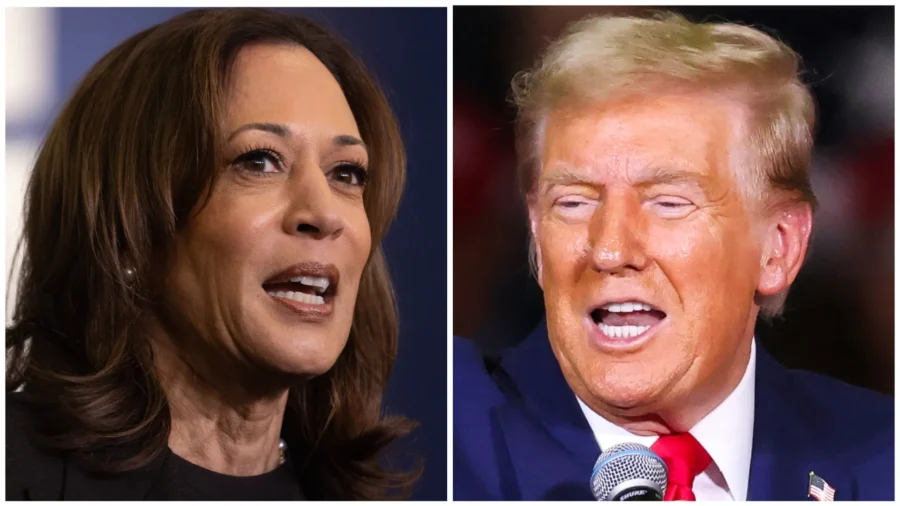WASHINGTON—Two weeks out from Election Day, the crisis in the Middle East is looming over the race for the White House.
Vice President Kamala Harris has been trying to balance talk of strong support for Israel with harsh condemnations of civilian casualties among Palestinians and others caught up in Israel’s wars against terrorist groups Hamas in Gaza and Hezbollah in Lebanon.
Former President Donald Trump says that none of this would have happened on his watch and that he can make it all go away if elected.
Both of them are bidding for the votes of Arab and Muslim American voters and Jewish voters, particularly in extremely tight races in the battleground states of Michigan and Pennsylvania.
As vice president, Harris is tethered to President Joe Biden’s foreign policy decisions, even as she’s tried to strike a more empathetic tone to all parties.
Trump, meanwhile, in recent days has participated in interviews with Saudi-owned Al-Arabiya and Lebanese outlet MTV, where he promised to bring about peace and said “things will turn out very well” in Lebanon.
The political divisions on the campaign trail augur potentially significant implications after Election Day as powers in the region, particularly Israel’s Benjamin Netanyahu, closely eye the outcome and the potential for any shifts to U.S. foreign policy.
A new AP-NORC poll finds that neither Trump nor Harris has a clear political advantage on the situation in the Middle East. About 4 in 10 registered voters say Trump would do a better job, and a similar share say that about Harris. Roughly 2 in 10 say neither candidate would do a better job.
There are some signs of weakness on the issue for Harris within her own party, however. Only about two-thirds of Democratic voters say Harris would be the better candidate to handle the situation in the Middle East. Among Republicans, about 8 in 10 say Trump would be better.

